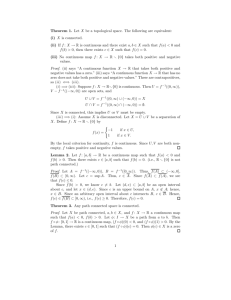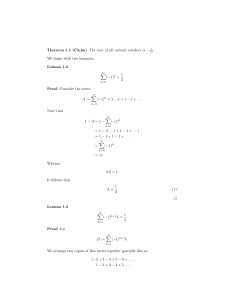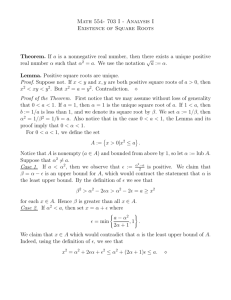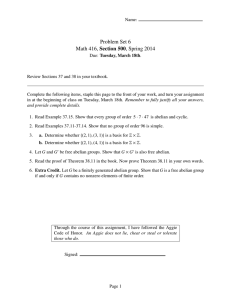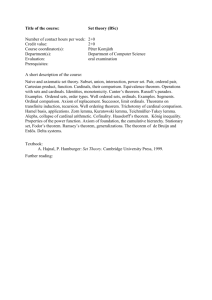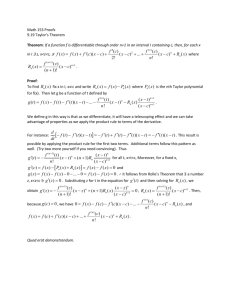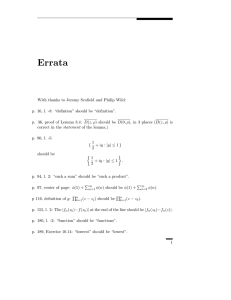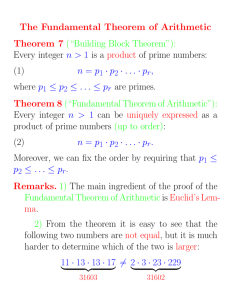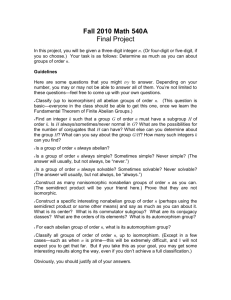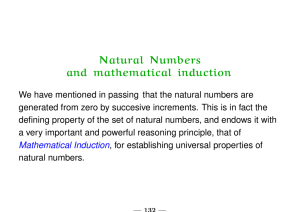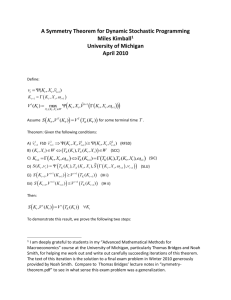CAUCHY`S THEOREM FOR ABELIAN GROUPS We start with the
advertisement
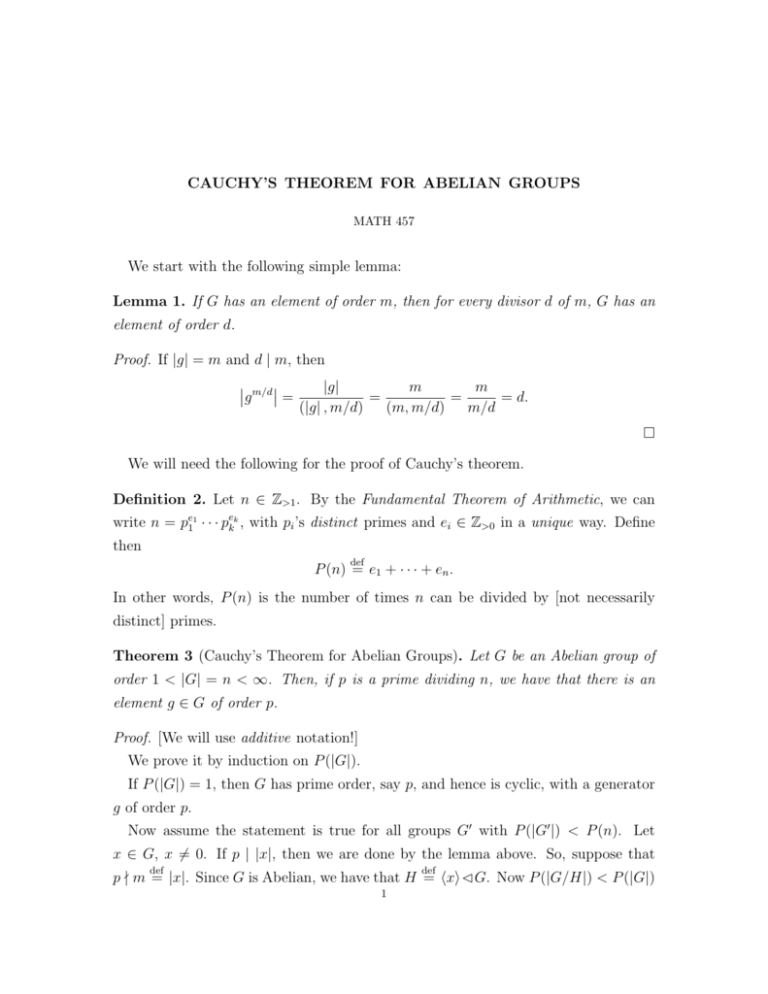
CAUCHY’S THEOREM FOR ABELIAN GROUPS MATH 457 We start with the following simple lemma: Lemma 1. If G has an element of order m, then for every divisor d of m, G has an element of order d. Proof. If |g| = m and d | m, then m/d g = |g| m m = = = d. (|g| , m/d) (m, m/d) m/d We will need the following for the proof of Cauchy’s theorem. Definition 2. Let n ∈ Z>1 . By the Fundamental Theorem of Arithmetic, we can write n = pe11 · · · pekk , with pi ’s distinct primes and ei ∈ Z>0 in a unique way. Define then def P (n) = e1 + · · · + en . In other words, P (n) is the number of times n can be divided by [not necessarily distinct] primes. Theorem 3 (Cauchy’s Theorem for Abelian Groups). Let G be an Abelian group of order 1 < |G| = n < ∞. Then, if p is a prime dividing n, we have that there is an element g ∈ G of order p. Proof. [We will use additive notation!] We prove it by induction on P (|G|). If P (|G|) = 1, then G has prime order, say p, and hence is cyclic, with a generator g of order p. Now assume the statement is true for all groups G0 with P (|G0 |) < P (n). Let x ∈ G, x 6= 0. If p | |x|, then we are done by the lemma above. So, suppose that def def p - m = |x|. Since G is Abelian, we have that H = hxiCG. Now P (|G/H|) < P (|G|) 1 2 MATH 457 [as |H| = m > 1]. Moreover p | |G/H| = |G| / |H|, since p | |G| but p - m = |H|. Hence, by the induction hypothesis, there is y +H ∈ G/H of order p [for some y ∈ G]. But then, p = |y + H| | |y| [as we’ve seen in class], and we have an element of order p in G by the lemma. Note: This idea of doing an induction on P (|G|) can be useful in many situations! Corollary 4. G is a finite p-group if and only if |G| = pr for some r ∈ Z≥0 . Proof. [⇒:] If q is prime different from p such that q - |G|, by the theorem G has an element of order q, and hence G cannot be a p-group. [⇐:] This is a consequence of Lagrange’s Theorem.
